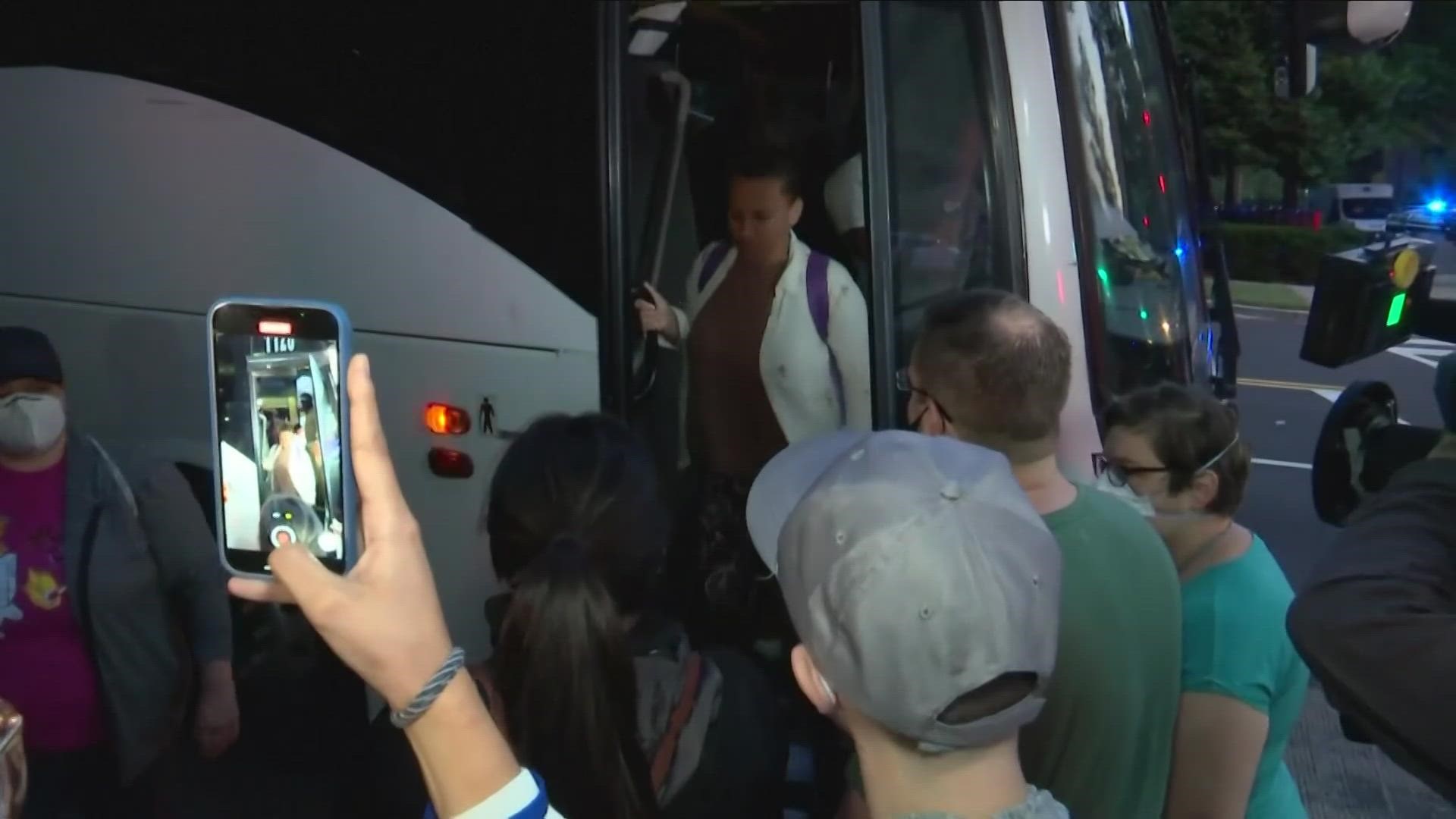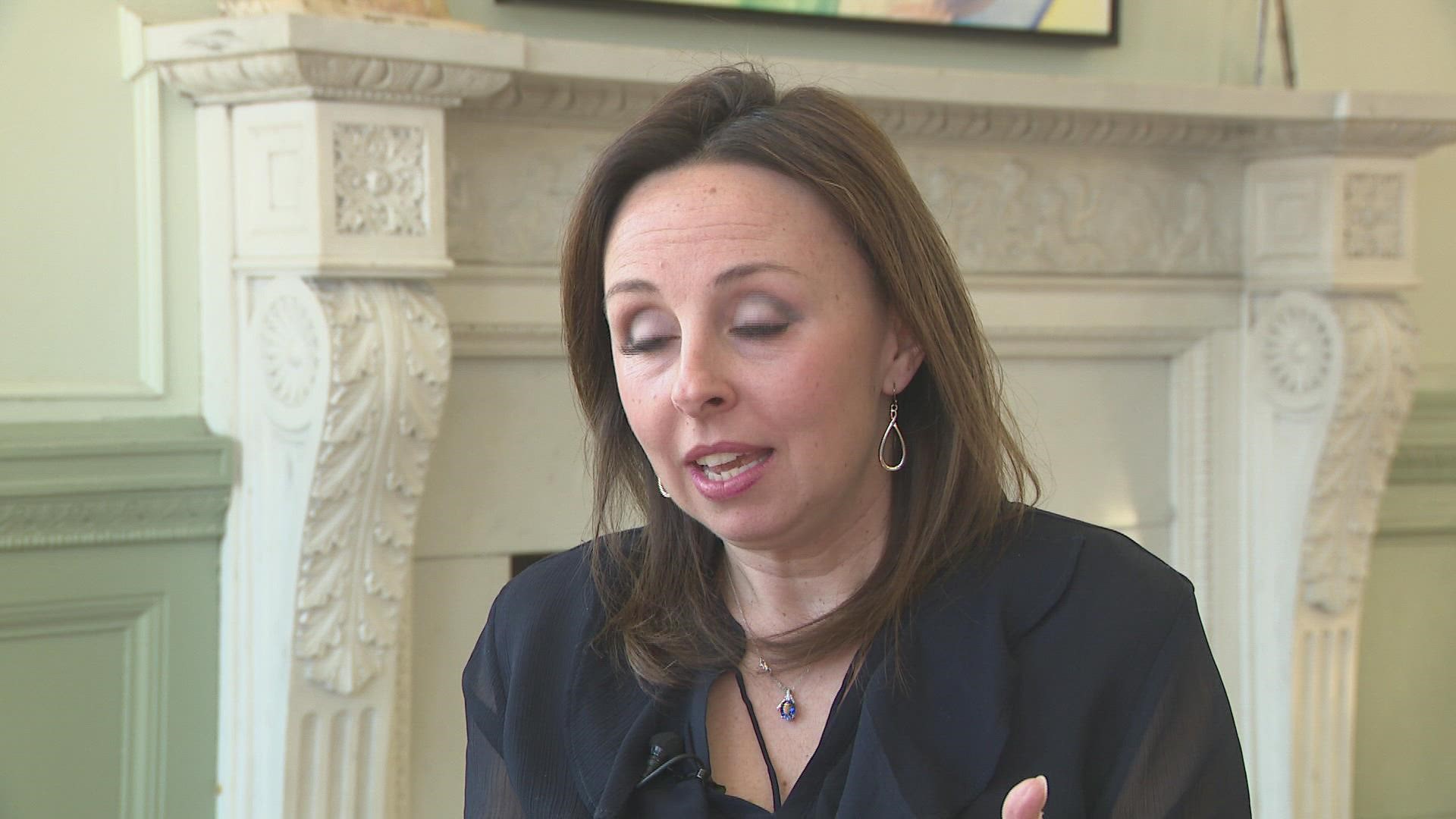BUFFALO, N.Y. — 1.7 million asylum seekers streamed across the southern border of the United States last year, and up to 40,000 of them are estimated to have come to New York City.
With his sanctuary city straining to provide for them, Mayor Eric Adams recently called for migrants to be moved into other areas upstate.
NY Gov. Kathy Hochul was asked about that on Wednesday, after announcing that her state budget includes $1 billion to help New York City continue to house and support these individuals.
"We've talked to (upstate) county executives and mayors who want to be helpful. But there is a qualifier too," said Hochul, referring to the legal distinction between refugees, who are legally eligible to gain employment and support themselves, and asylum seekers, who are not.
"Asylum seekers have to file for asylum and then wait a certain amount of time under the law to then apply for employment permission," explained Jennifer Rizzo-Choi, Executive Director of the International Institute of Buffalo, one of several resettlement agencies in Western New York.
"An asylum seeker is one of those categories of people where they are in limbo, and that's why we are hearing so much noise about this coming out of New York City. With so many people showing up, the city's trying to accommodate them, and they can't tap any buckets of resources. They (asylums seekers) aren't eligible for food stamps, or welfare, or getting a job to take care of themselves, and that's why there's this strain," Rizzo-Choi said.
(Web extra: Listen to full interview with Jennifer Rizzo-Choi below this article, which includes an explanation of the important legal distinctions between various groups of migrants.)
While the International Institute tries to assist newcomers of all categories, what they can do for asylum seekers who've yet to attain legal status is limited.
"Most agencies like ours are heavily funded through federal and state funds are restricted in who we can put into our programs," Rizzo-Choi said.
According to Peter Anderson, press secretary for Erie County Executive Mark Poloncarz, there have been discussions regarding migrant populations.
"Erie County has a long history of settling 'New Americans' who have fully vetted legal status with a pathway to citizenship, and who can positively contribute to our economy by filling in-demand jobs and becoming productive taxpayers," Anderson wrote in an email.
However, asylum seekers don't have fully vetted legal status and therefore can't fill in demand jobs until they attain it.
While Hochul indicated she is open to providing aid to communities in other parts of the state willing to open their doors to asylum seekers, "for now our focus is to help the city (New York) get through this."
Hochul also inferred that for those who have begun the process of obtaining legal status, it for now might be best for them to remain where they are, "instead of falling between the cracks, and then they are hard to find in order to start the process to get legal asylum here."
"That's why we are adding more money to legal services so they can start the application process literally when they arrive," said the governor, who several years ago while serving as Erie County Clerk, pledged to turn anyone without legal status to be into the country over to immigration authorities if they tried to obtain a driver's license.
Hochul also predicted the $1 billion being sent to assist New York City won't be reoccurring expense, referring to it as a temporary measure.
"Once these individuals are qualified to have status to get a job, the need to support them will diminish exponentially," Hochul said.
Rizzo-Choi, however, isn't so sure.
"It's not uncommon to meet someone whose been waiting for five years for an answer on their asylum case," she said.
Hochul also said she's spoken to President Biden, whose polices have led to the increase of migrants crossing the southern border, about the federal government assisting with dollars to deal with them if they are to remain.
"We believe they should be picking up a significant share," Hochul said, who added the costs for the state may increase soon, particularly when it comes to providing health care .
"The federal government has been picking up Medicaid costs for health care as long as there's a Covid emergency," Hochul said. "When that time frame elapses, which we are being told is going to be in May, that's an additional cost that we are trying to account for because that will now be on the state."


